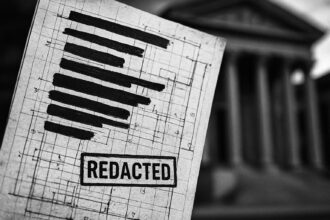The family of Denis Donaldson condemns the judicial process that sidelined their voice following his murder, contrasting his fate with the protected double agent Stakeknife and calling for a full inquiry amid decades of unresolved conflict and delayed justice.
The tragic fate of Denis Donaldson, a man whose life was intertwined with the murky world of informants, has recently come under scrutiny. His murder has drawn critical comparisons to that of another notorious double agent, Freddie Scappaticci, known by the codename ‘Stakeknife’. The family of Denis Donaldson has voiced their dissatisfaction with the judicial process surrounding his death, particularly in relation to a libel case brought by Gerry Adams against the BBC. The family feels justifiably overlooked, highlighting the absence of their voice in a court that failed to grant the opportunity for Jane Donaldson, Denis’s daughter, to speak on behalf of her father’s legacy.
In the aftermath of the trial, Justice Alexander Owens permitted testimony from Ciaran Shiels, the family’s former solicitor, but denied a platform to Jane. This omission raises questions about the true representation of victims’ families in legal proceedings, with Jane calling her father’s abandonment by the state a betrayal. She expressed her dissatisfaction with the judicial system, stating her father was “thrown to the wolves”, in stark contrast to Scappaticci, who was afforded protection by British security forces. It is that perceived hypocrisy—where one man enjoyed security while the other was sacrificed—that has left the Donaldson family seeking justice. Jane has since demanded a full inquiry into her father’s murder, a call underscored by the fact that the inquest has been postponed an astonishing 27 times.
The case of Stakeknife adds another layer to this narrative. Recent inquiries revealed that Scappaticci’s actions, while initially thought to have saved lives, likely resulted in far more fatalities. An investigation into his tenure as a British agent within the IRA estimated that his activities caused more harm than good, allowing preventable murders to occur while he maintained his cover. Despite the extensive Operation Kenova, which examined Scappaticci’s role—a seven-year investigation costing £40 million—findings concluded that no charges would materialise against him or any other individuals implicated, due to “insufficient evidence” as stated by the Public Prosecution Service.
This raises unsettling questions regarding the accountability of state informants and the broader implications of state-sponsored deception. As the inquiry’s results trickled down to victims’ families, their hopes for justice appeared to dwindle further into a realm of unresolved grief and unanswered questions. The realization that the very structures designed to uphold justice may also obscure it leaves a haunting aftertaste.
Merging the perspectives of Denis Donaldson’s family with the findings surrounding Stakeknife, we observe a fundamental systemic issue: when the British establishment seeks to protect its own interests, the truth often remains obscured in shadows. For those left to grapple with the aftermath—families bereaved in a conflict complicated by betrayal and political manoeuvring—the call for transparency and truth becomes not just a quest for justice, but a need for healing amid the murk.
The contrast between these two cases epitomises the complexities surrounding disclosures of state complicity and betrayal in Northern Ireland’s tumultuous past. As public sentiment grows for frank discussions about the sins of the past, the continued silence and lack of accountability remain troubling reminders of the costs of unresolved conflict.
Source: Noah Wire Services
- https://www.irishnews.com/opinion/mary-kelly-when-the-british-state-seeks-to-protect-itself-no-truth-will-emerge-from-the-murk-ADL2DWG2QRBJ5CJ2WTCX3NVYHE/ – Please view link – unable to able to access data
- https://www.reuters.com/world/uk/actions-britains-top-ira-spy-likely-resulted-more-lives-lost-than-saved-inquiry-2024-03-08/ – An independent inquiry into ‘Stakeknife’, a senior British informer in the IRA, concluded that his actions likely resulted in more lives being lost than saved. The report revealed that British security forces were often aware of imminent threats but failed to intervene, allowing preventable murders to occur. The investigation also criticized the lack of a legal framework to regulate agents’ activities. Freddie Scappaticci, suspected of being ‘Stakeknife’, had denied being a double agent before his death. The report estimated that only a small number of lives were saved by ‘Stakeknife’, contrary to previous beliefs of his greater contribution.
- https://www.theguardian.com/uk-news/2024/mar/08/stakeknife-seven-years-and-40m-later-how-did-inquiry-fail-to-deliver-justice – After seven years, 1,000 witness statements, 50,000 pages of evidence, and £40 million, the police inquiry known as Operation Kenova has resulted in zero prosecutions. The inquiry’s long-awaited interim report into ‘Stakeknife’, the codename of a top British agent in the IRA, found that more lives were probably lost than saved. The report highlighted the complex relationship between Freddie Scappaticci, the man widely believed to be ‘Stakeknife’, and Britain’s intelligence services, and questioned the effectiveness of the investigation in delivering justice to victims’ families.
- https://www.bbc.co.uk/news/uk-northern-ireland-67635887 – The Public Prosecution Service (PPS) has decided not to charge 15 individuals, including former IRA members and security force personnel, following a multi-million-pound investigation into ‘Stakeknife’. The £37 million inquiry examined the activities of the Army agent within the IRA, widely believed to have been Freddie Scappaticci, who died earlier this year. The PPS concluded there was ‘insufficient evidence’ to bring charges, citing intelligence records that cannot be used in prosecutions. Victims’ families were informed of the decisions hours before they were made public.
- https://www.theguardian.com/uk-news/2020/oct/29/stakeknife-scandal-freddie-scappaticci-not-face-perjury-charge-ira – The PPS examined whether Freddie Scappaticci committed perjury in court by denying he was ‘Stakeknife’. The case relates to Operation Kenova, an inquiry into the ‘Stakeknife’ controversy. After a thorough analysis of all available evidence, the PPS concluded there was insufficient evidence to provide a reasonable prospect of conviction for any offence. This decision means that Scappaticci, accused of being the agent described as ‘the jewel in the crown’ of intelligence assets inside the IRA, may never appear in court.
- https://www.irishnews.com/news/northern-ireland/stakeknife-no-prosecutions-in-operation-kenova-probe-as-last-files-considered-SX3HPNLWHJEQ7AG4GKWF6OIR6Y/ – No prosecutions are to be pursued following consideration of the final files from a major investigation into the British Army’s top agent in Northern Ireland during the Troubles. The Public Prosecution Service (PPS) concluded there was ‘insufficient evidence to provide a reasonable prospect of conviction’ for any individual reported in relation to five incidents that occurred between 1987 and 1994. The agent, known as ‘Stakeknife’, worked in the IRA’s notorious ‘nutting squad’, interrogating suspected informers during the Troubles.
- https://www.theguardian.com/uk-news/article/2024/aug/07/stakeknife-fresh-leads-alleged-murders-britain-top-spy-ira-alarms-police-chief – The police chief investigating murders allegedly carried out by Freddie Scappaticci, a British agent in the IRA known as ‘Stakeknife’, has expressed alarm that hundreds of pages of files providing ‘new investigative leads’ have been found by MI5 a year after Scappaticci’s death. Sir Iain Thomas Livingstone, who leads Operation Kenova, wrote to the Northern Ireland secretary to highlight the troubling timing and warn that the new intelligence raises questions about MI5’s previous claims of knowledge about ‘Stakeknife’.













